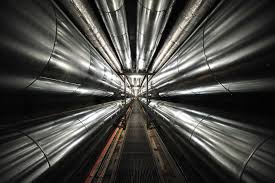
Breaking News
 Networks Versus Hierarchies in Minneapolis' Struggle Against ICE
Networks Versus Hierarchies in Minneapolis' Struggle Against ICE
 Billionaire Reid Hoffman, Who Bankrolled the E. Jean Carroll Lawsuit Against Trump,...
Billionaire Reid Hoffman, Who Bankrolled the E. Jean Carroll Lawsuit Against Trump,...
 Hybrid jet engines work to excel where pure-electric jets fail
Hybrid jet engines work to excel where pure-electric jets fail
 This Could Completely Change the Way You Grade
This Could Completely Change the Way You Grade
Top Tech News
 Critical Linux Warning: 800,000 Devices Are EXPOSED
Critical Linux Warning: 800,000 Devices Are EXPOSED
 'Brave New World': IVF Company's Eugenics Tool Lets Couples Pick 'Best' Baby, Di
'Brave New World': IVF Company's Eugenics Tool Lets Couples Pick 'Best' Baby, Di
 The smartphone just fired a warning shot at the camera industry.
The smartphone just fired a warning shot at the camera industry.
 A revolutionary breakthrough in dental science is changing how we fight tooth decay
A revolutionary breakthrough in dental science is changing how we fight tooth decay
 Docan Energy "Panda": 32kWh for $2,530!
Docan Energy "Panda": 32kWh for $2,530!
 Rugged phone with multi-day battery life doubles as a 1080p projector
Rugged phone with multi-day battery life doubles as a 1080p projector
 4 Sisters Invent Electric Tractor with Mom and Dad and it's Selling in 5 Countries
4 Sisters Invent Electric Tractor with Mom and Dad and it's Selling in 5 Countries
 Lab–grown LIFE takes a major step forward – as scientists use AI to create a virus never seen be
Lab–grown LIFE takes a major step forward – as scientists use AI to create a virus never seen be
 New Electric 'Donut Motor' Makes 856 HP but Weighs Just 88 Pounds
New Electric 'Donut Motor' Makes 856 HP but Weighs Just 88 Pounds
 Donut Lab Says It Cracked Solid-State Batteries. Experts Have Questions.
Donut Lab Says It Cracked Solid-State Batteries. Experts Have Questions.
China Mass Production of Nuclear Thermal Power Could Reach 1 Cent per KWH

This is close to the one-cent target of the Anthropocene Institute. China is planning to build a lot of nuclear regular third-generation nuclear reactors and drive costs down by 40%. Learning to build Nth reactors cheaper could drive the costs of deep pool reactors to 1 cent per kilowatt-hour. Mass production and process improvements could then bring this solution to the one-cent per kwh target.
The cost projection is for a kilowatt-hour of thermal power but this heat can displace a large usage of coal. There is also a projection that China could mass-produce regular nuclear reactors for electrical power. The projection is that they could reduce costs by 40% from today's costs. This would get nuclear electric costs in 2030 to potentially less than 3 cents per kwh for electricity.
In 2014, the levelized cost of electricity (LCOE) in China was 4 cents per kwh for hydroelectric and other renewable energy (RE) power had costs ranging from 5 to 11 cents per kwh.
The nuclear district heaters will already be near the cost of traditional coal-fired boilers in China and around 40 percent of the cost to produce the same amount using a gas-fired boiler. China is not importing enough natural gas from Russia and other sources. A trade deal with the US would likely involve a lot of liquified natural gas which is more expensive.



